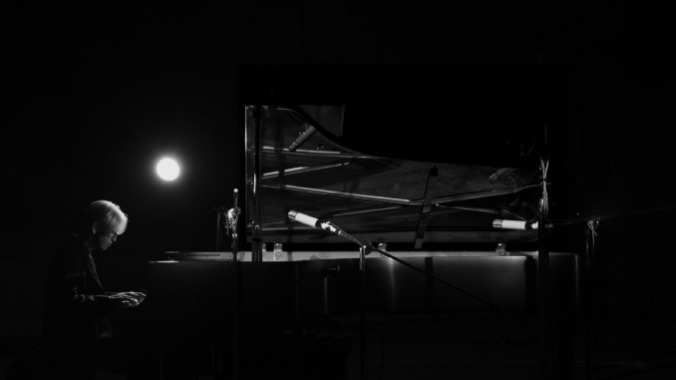The Weekend Watch: Ryuichi Sakamoto | Opus
Subscriber Exclusive

Welcome to The Weekend Watch, a weekly column focusing on a movie—new, old or somewhere in between, but out either in theaters or on a streaming service near you—worth catching on a cozy Friday night or a lazy Sunday morning. Comments welcome!
Ryuichi Sakamoto was a musician who hopped from breaking new electronic ground with Yellow Magic Orchestra in the ‘70s and ‘80s to a prolific solo piano career to an Oscar-winning stint as a film composer. Hell, he made the Dreamcast startup sound! His musical legacy is such that, during his decade-long battle with cancer, those who loved him had ample time to cement that love into the physical world. Tributes abound, especially as his final film work hit the big screen with Hirokazu Kore-eda’s Monster, but one particular effort had so much planning and intimacy put into it that it’s impossible to ignore. Ryuichi Sakamoto | Opus, directed by his son Neo Sora a few months before Sakamoto’s death, is a one-man concert film intended as a farewell gift to those who knew and loved him—and his music. Ryuichi Sakamoto | Opus is streaming now on the Criterion Channel.
Shot in black-and-white as sparse as the mise en scène—Sakamoto, a Yamaha piano, a half-dozen mics, and a light to read sheet music by are all that fill the frame—Opus isn’t a film of harsh contrasts, nor does it muddle into straightforward simplicity. There is no voiceover, there are no title cards. Even the relatively scant sound recording equipment was the result of a fight between the film’s sound engineer and Sora. Opus was meant to be watchable, even if that meant not having a hundred precise mics surrounding the soloist. The compromise looks composed yet focused. There’s clarity and elegance and the ever-presence of reality to the image and the sound, as the microphones pick up Sakamoto’s breaths or the percussive beats of his movements. With just enough differentiation in visual and aural texture, the film moves towards Sakamoto, pulled in by his melodic lines. Sora zooms slowly towards his father, a cobra hypnotized by his spell, specifically moving cinematographer Bill Kirstein’s camera in towards the musician’s hands.
As much as we understand that Ryuichi Sakamoto’s mind created this music, his eyes glancing up at the score in front of him and his silhouette playfully interrupting the main light source, the more mechanical part of our brain knows that there’s always a bit more magic in the muscles. The spark isn’t just in the writing and the knowing, in the understanding of rhythm and harmonics, but in the micro-adjustments allowing those practiced fingers to press life from the keys. Some people call it talent, or instinct, or feel. As Opus nears its end, and Sakamoto’s final bow, that special something can only feel like life.
-

-

-

-

-

-

-

-

-

-

-

-

-

-

-

-

-

-

-

-

-

-

-

-

-

-

-

-

-

-

-

-

-

-

-

-

-

-

-

-








































